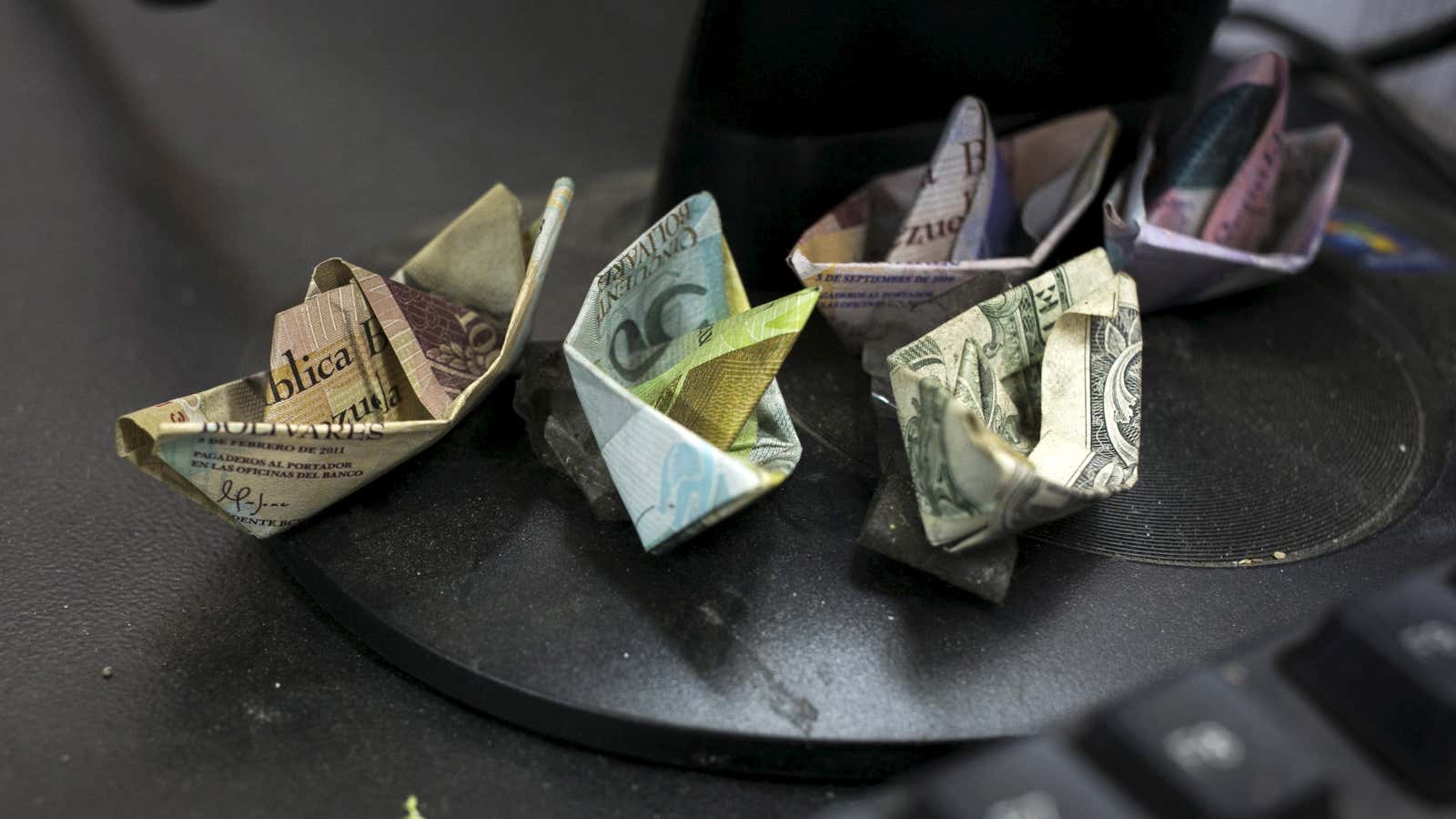Venezuela, where hyperinflation means shoppers go to the grocery store with cash-stuffed backpacks, has decided to withdraw its biggest denomination bill from circulation.
President Nicolás Maduro said Dec. 11 that the 100-bolívar note, worth just 2 US cents, will be phased out within the following 72 hours. The stated goal is to stop criminal gangs from trafficking with the bills, which are allegedly used to buy subsidized goods in Venezuela and as paper to print counterfeit dollars (both links in Spanish.) The government plans to later introduce higher-denomination banknotes, adding to an already chaotic situation. Reportedly, more than six billion 100-bolívar notes are in circulation—48% of the country’s cash.
The measure is similar to the sudden demonetization policies by India’s prime minister Narendra Modi last month. Overnight, Modi banned the use of 500 and 1,000 rupee notes—which made up 86% of the cash in circulation—and closed banks and ATMs to force people to hand in the money. The results there should have been a warning sign for Maduro. A month in, the move had disrupted Indian manufacturing, cut business for a variety of companies, and hit consumer spending, a key economic driver. Not to mention the annoying and unproductive waiting in line to get cash.
That’s in India’s relatively functional economy. Venezuela was already in shambles before the bill withdrawal. The economy is expected to have contracted by 10% this year. Venezuelans have to contend with triple-digit inflation, a near-worthless currency, and long lines at the supermarket and the bank. The government is losing its grip on the country, which is suffering a “profound humanitarian crisis” from a lack of basic medical supplies and food, according to Human Rights Watch. Getting cash has been a problem due to surging prices and government-imposed limits (Spanish) on how much people can withdraw from their own accounts.
The decision comes less than two weeks before Christmas, a major shopping season, even in Venezuela, where many people can’t even afford to buy enough food. The 100-bolívar note is the most widely used, and vendors regularly refuse to take payment in smaller bills. Nobody wants to haul around even bigger wads of money.
“When ineptitude governs! Who thinks of doing something like that in Dec. and with the difficulties there are?” tweeted opposition leader Henrique Capriles.
Venezuela’s central bank has said it will start circulating higher currency bills (Spanish) on Dec. 15, a move that resembles the steps Zimbabwe and 1920’s Germany had to take at the height of their hyperinflation. Critics question whether Venezuela’s schedule will go according to plan.
Regardless, the new notes do nothing to solve the underlying problems in the country. Even with the largest bill, worth 20,000 bolívars, workers would need more than 20 bills to buy the basic goods basket, which cost 430,000 bolívars (Spanish) in October. That was 19 times the minimum salary.




